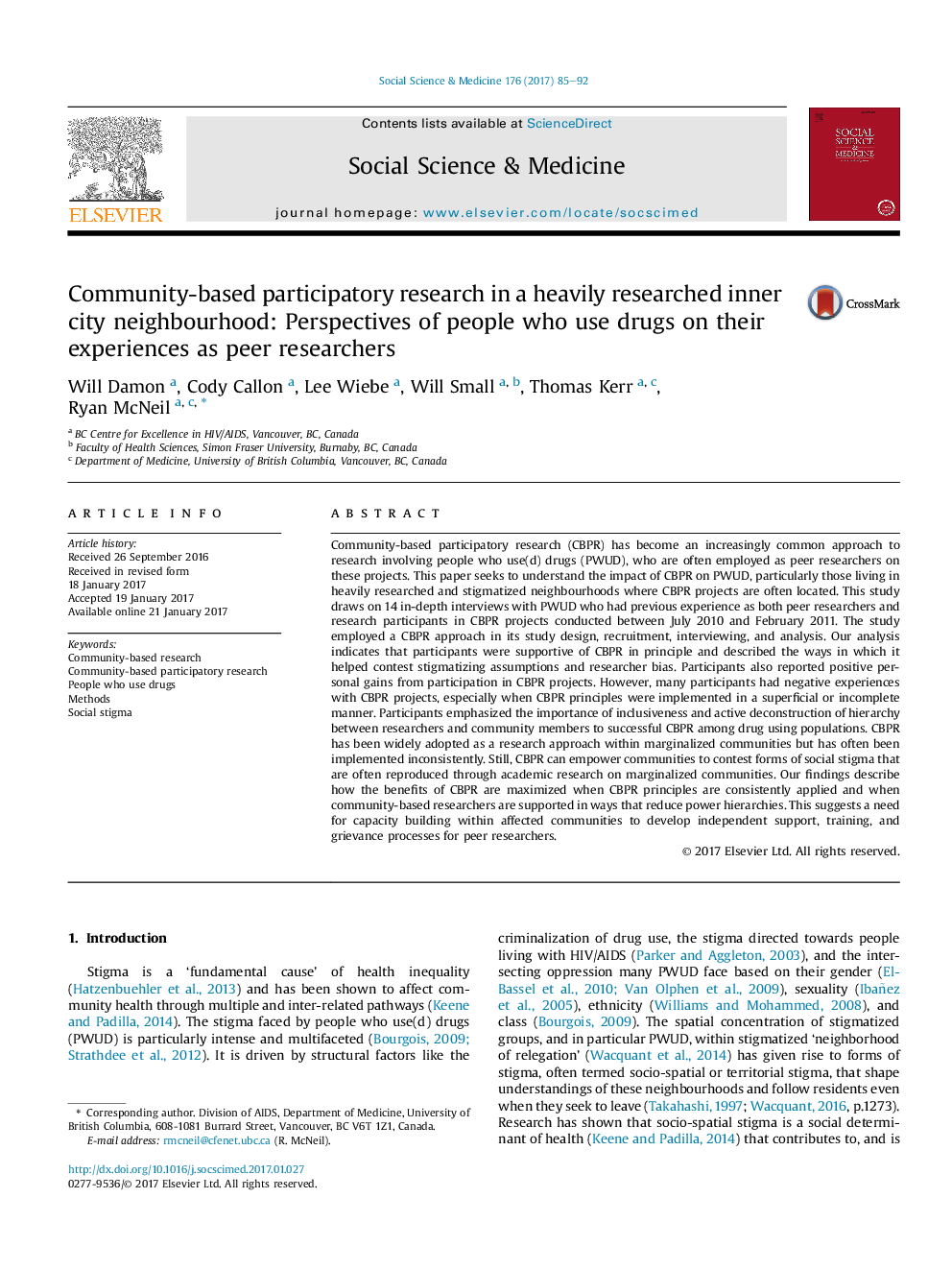| کد مقاله | کد نشریه | سال انتشار | مقاله انگلیسی | نسخه تمام متن |
|---|---|---|---|---|
| 5046750 | 1475993 | 2017 | 8 صفحه PDF | دانلود رایگان |
- CBPR increasingly common in research involving people who use drugs (PWUD).
- Examines experiences of PWUD with CBPR in heavily researched urban setting.
- Outlines importance of inclusiveness and deconstruction of research hierarchies.
- PWUD can contest stigmatizing research processes through participation in CBPR.
- Grievance processes and other safeguards necessary to ensure community oversight.
Community-based participatory research (CBPR) has become an increasingly common approach to research involving people who use(d) drugs (PWUD), who are often employed as peer researchers on these projects. This paper seeks to understand the impact of CBPR on PWUD, particularly those living in heavily researched and stigmatized neighbourhoods where CBPR projects are often located. This study draws on 14 in-depth interviews with PWUD who had previous experience as both peer researchers and research participants in CBPR projects conducted between July 2010 and February 2011. The study employed a CBPR approach in its study design, recruitment, interviewing, and analysis. Our analysis indicates that participants were supportive of CBPR in principle and described the ways in which it helped contest stigmatizing assumptions and researcher bias. Participants also reported positive personal gains from participation in CBPR projects. However, many participants had negative experiences with CBPR projects, especially when CBPR principles were implemented in a superficial or incomplete manner. Participants emphasized the importance of inclusiveness and active deconstruction of hierarchy between researchers and community members to successful CBPR among drug using populations. CBPR has been widely adopted as a research approach within marginalized communities but has often been implemented inconsistently. Still, CBPR can empower communities to contest forms of social stigma that are often reproduced through academic research on marginalized communities. Our findings describe how the benefits of CBPR are maximized when CBPR principles are consistently applied and when community-based researchers are supported in ways that reduce power hierarchies. This suggests a need for capacity building within affected communities to develop independent support, training, and grievance processes for peer researchers.
Journal: Social Science & Medicine - Volume 176, March 2017, Pages 85-92
